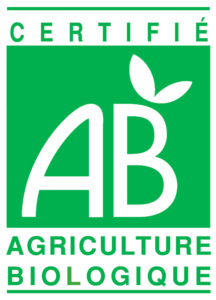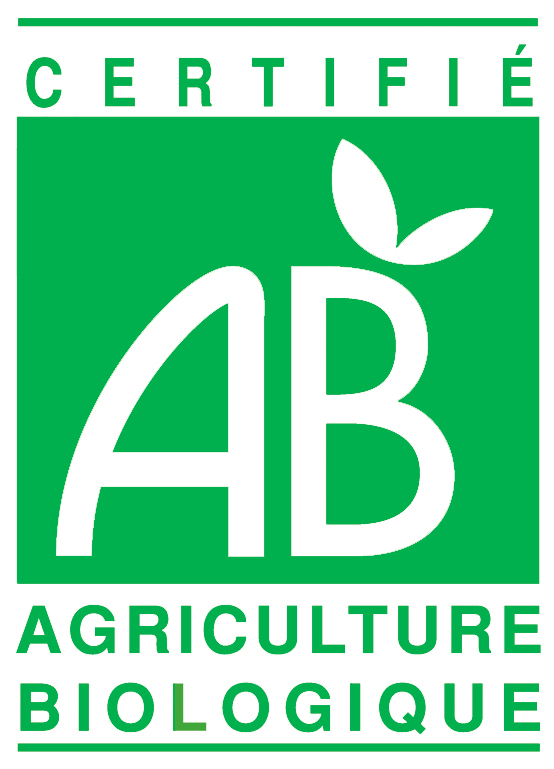 Looking around in the media and online there seems to be some confusion about what certified organic agriculture is and what it is not. So I thought I might have a try at clearing up some myths and actually explain what certified organic agriculture is.
Looking around in the media and online there seems to be some confusion about what certified organic agriculture is and what it is not. So I thought I might have a try at clearing up some myths and actually explain what certified organic agriculture is.
According to the IFOAM Organic international the definition of organic agriculture is
Organic Agriculture is a production system that sustains the health of soils, ecosystems, and people. It relies on ecological processes, biodiversity and cycles adapted to local conditions, rather than the use of inputs with adverse effects. Organic Agriculture combines tradition, innovation, and science to benefit the shared environment and promote fair relationships and good quality of life for all involved.
The EU definitions for the basis for national organic rules in the European Union. the rules are not comprehensive. Also like all European, and indeed national rules, they are a product of political negotiations. A number of factors have had to be balanced, actual organic practises, the commercial interests of the various actors, and what is practical.
There are multiple actors involved, and some of their interest are actually imposed to each other.
One of the big issues for example is between organic producers and supermarket chains.
According to Agence Bio, in 2020 74% of all organic products in France are bought in supermarkets.
Supermarket supplier contracts are complex things, with many subclauses, penalty clauses, quality and volume agreements. Supermarkets want a consistent supply, of a products that looks good on their shelves, 12 months out of 12. Industrial agriculture has a wide range of chemicals, closed storage units with controlled atmospheres, and product treatments, to keep products appearing fresh, as well as heated greenhouses and inputs to grow out of season that are not available to organic producers. Hence the big debate here in France on whether organic tomatoes growers can use heated polytunnels to extend their growing season to meet supermarkets requirements. Is it respecting the seasons as the European rules state to use heated polytunnels, clearly not. This debate has lead a number of organic organisations to resign from the body that forms proposals for changes inorganic rules in France.
There are other practical realities that have been confronted in the organic certification rules. Very topical around here in the Corbieres are the rules governing the physical distance between and organic grape producer’s vines and an industrial grape producer’s vines. Industrial producers have the right to use a range of fertilisers, pesticides, herbicides and fungicides that are forbidden for organic producers, most are applied by spraying. The South of France is not known for it’s lack of wind. Sprayed chemicals can be carried by a high wind up to 12 kilometres.
Short of finding an island in the middle of the Mediterranean and designating that as 100% organic there is no way to ensure that an organic certified grape has not been touched by a molecule of forbidden chemical.
Now of course industrial grape growers tend to avoid windy days to spray as they wish their treatments to cover their vines as much as possible. But does the present rules of a distance equivalent to three rows of vines between and industrial producer and an organic one effectively limit the scope of contamination, and what is an acceptable level of contamination. And what is an acceptable level of contamination for each of the products used by industrial agriculture?
So as we can see organic certification rules are a compromise between the different actors, whether they bend to far to commercial realities, or are too strict to be profitable clearly depends on your point of view and are a constant subjects for debate and dispute. For more on this see Organic 3.0
The next issue is who polices organic rules.
As we have seen above the base line rules of organic agriculture in the European Union are set at a European level and the interpreted by national governments.
However the organisations that do the verification of organic producers are not national governments, but independent certifiers. In the UKL the biggest is Soil Association, Here in France there are 11 different certifiers, see the list at Agence Bio.
In Europe you only have the right to call your label your products organic if you are controlled by an organic certifying organisation. Certifying organisations are strange beasts. Authorised by the state to issue organic certifications they earn their income from being paid by the businesses they control.
Does this create a conflict of interests as some have suggested? Well it is not ideal, an independent Government agency that had no financial interest in those it controlled would be optimal, but the wide spread of organic producers and transformers makes it difficult for say a large producers to strong arm it’s certifier into turning a blind eye to dodgy practises.
That is not to say that large businesses are above trying to stretch the boundaries of organic rules to suit their own commercial interests, the heated polytunnel for extending the tomato harvest is a prime example. But here in France it is no exactly a hidden issue, it has been widely reported by the media, and an informed consumer can decide if they want French organic tomatoes in February.
All the certifying bodies in Europe have as their base line the organic rules of the European Union, and, if in place, the national rules of the state in which they operate, a number have international offices.
Some are simple certifiers who control producers and transformers. Other have campaigning wings, like the UK’s Soil Association which seek to convince farmers, transformers, distributors, consumers and governments of the benefits of organic agriculture. Some have training wings to teach organic techniques to existing and wanabee organic farmers.
Biodynamic agriculture and transformers, who’s proponents argue is organic plus, has it’s own certifier, Demeter. The debates about biodynamic techniques I will leave for another post.
So how do these certifiers operate? Quite simply through a series on on site visits, controllers trained in organic rules book, often at short notice, visit to a producer in situ. They inspect the production process, go through the books, look at the inputs used. in our case for example that involves checking all our soil and seed purchases, we have to produce the organic certificates of all our suppliers. Varieties we do not have certificates for we have to justify their inclusion. New varieties that we do not have a proven organic supplier for, for example a gardener who has given us a new variety, we have to grow for three years before we have the right to call it organic.
We pay for an annual inspection but can be controlled three or four times a year.
Is the organic certification system open to abuse. Like all controls if you are so inclined then yes of course it is. There are 365 days in a year, what would be the chances for example of a controller catching me using hormone rooting powder to increase the success rate of difficult to reproduce cuttings? Virtually zero.
However there is a high chance that an experienced controller, and other organic producers would notice if there was a sudden change in the outputs from a producer. If alerted then the certifiers can come in and conduct much more extensive checks on suspect producers, sending soil samples, for detailed analysis for example.
So what keeps organic producers honest in the main part? Well obviously there is the threat of a fraud investigation, which if proven could lead to fines and possible prison time. The other is loss of the organic certification;
The loss of an organic certification has a serious effect on the short term future of a producer. You can’t promise to be better next time and start all over again.
This goes back to how you become a certifies organic producer in the first place. It is not a question of waking up one morning and deciding to be organic.
To transition from being an industrial producer to being a certified organic producers takes three years. During this three year transition process the producer has to pay the certifier for the usual controls, produce under the organic rules, with all the additional expense and additional work. All without the right to label his organic products organic, so is therefore unable to benefit from the premium prices organic produce receives. Only in the third year may the producer label their products as in transition to organic.
This barrier to entry is also a strong block on misbehaviour.
In terms of retail most organic fraud goes on in markets. For some simple rules on buying organic in markets have a quick read of my article about fraud in Lezignan Corbieres market
Supermarkets and organic shops like BioCoop are usually scrupulous about checking the organic certification of their suppliers.
To sum up certified organic agriculture is a set of rules made by the European Union and national governments. They are a compromise between the pure principals of organic agriculture and the operating and commercial realities of production and the market.
Naturally these rules are contested, for organic purists they are too compromise by commercial interests, for some; often larger, producers they are too restrictive and do not reflect the commercial realities of the marketplace. The debate is ongoing, as it should be on where the line should be drawn.
Meanwhile each individual producer makes decisions themselves on where to drwa the line, sole just obeying the base line rules, others sticking to the pure organic principals, most of us are between the two depending on our individual experience, commercial and natural conditions, which can vary from year to year.
For the anti organic lobby, that is big industrial farmers, Big Seed and Big Chemicals there is an odd critique that because certified organic agriculture is not perfect then it is worthless, but these are the same people who if it was 100% compliant with organic principals would condemn certified organic agriculture for being holier than thou idealism. But sod them, they dislike organic if it threatens their markets, colonise it if they can see profit, and have no principals of their own.

